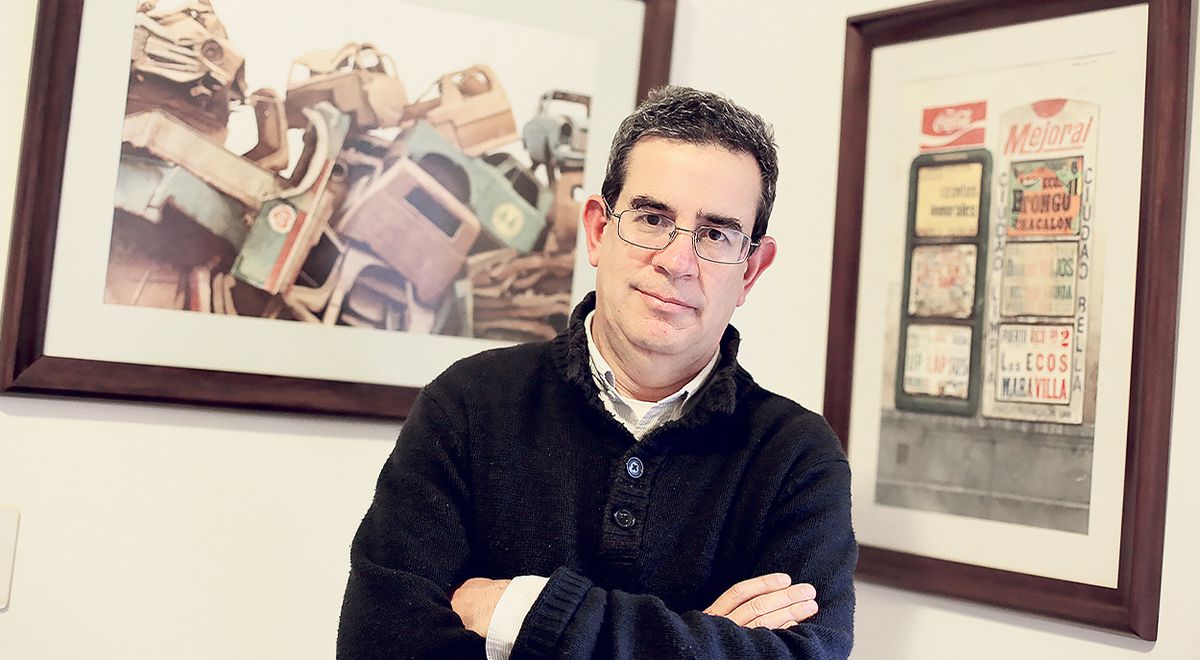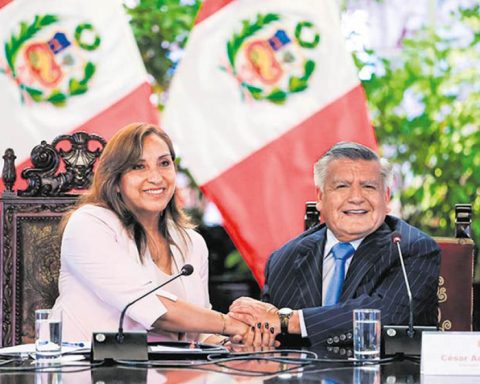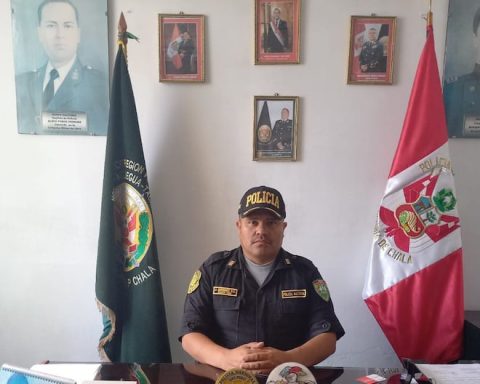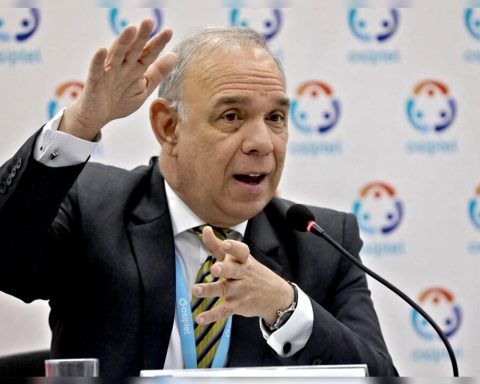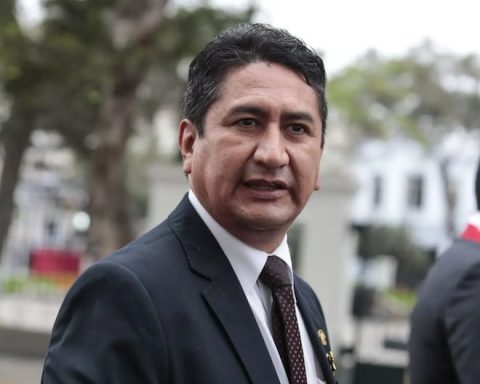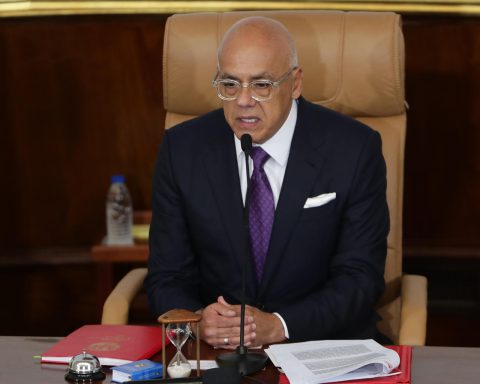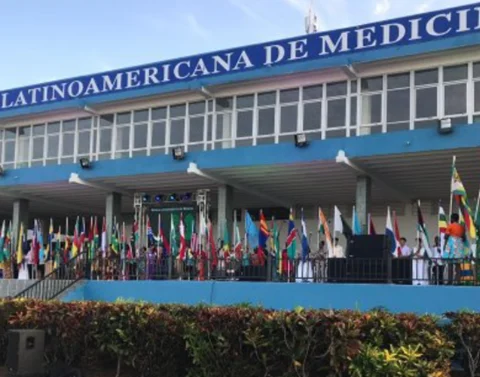Víctor Vich, PUCP professor and IEP researcher, He said that we are experiencing a deterioration of the political, economic and cultural system. This, he added, has intensified since the neoliberal reforms of the nineties, which accentuated individualization, prioritized private interest and perforated the sense of community.
— He has written a couple of articles in which he develops the idea that Peru is going through an almost metastatic deterioration. Why?
— It is clear that we are experiencing a deterioration of the political class, of the political parties, of the political system in general that the different Congresses do not dare to reform. We are experiencing an economic deterioration in the sense of a model that in 30 years of prosperity has disregarded what is public, that has deteriorated what is public, has denigrated it, has privatized it and made it precarious. But it is not only a political and economic deterioration. It is also cultural.
— What does it mean?
– What is a deterioration that it has to do with the way we live, with the links between Peruvians, with the loss of the sense of community. We see a deeply sexist, deeply racist community that was activated in the campaign, deeply corrupt, homophobic, where relationships between people are mediated by hierarchies, uses. If I’m rich and you’re poor I take advantage of it and pay you the minimum wage, if you’re a woman I hit you or rape you. So, it is a tremendous deterioration of community life.
YOU CAN SEE:
— The crisis goes beyond politics, then. It is a systemic deterioration.
– Exact. It is a problem of how the links between people have been regulated, of how social relationships are built and a deterioration in the sense of an absolute disregard for knowledge, knowledge. It is an ignorant political class, an ignorant business class, and we do not see spaces for reflection and questioning. We don’t see anything. We see a hollowing out of reality.
— Since when does this come?
— This has intensified in the last 30 years. We have heard about the benefits of neoliberal policies, but not what their dark sides have been. What the reforms of the nineties do is generate a extreme individualism, excessive, there is no society. The only thing that matters is the private interest of the entrepreneur. What these reforms do is deteriorate solidarity, the few…
— Links we had as a society.
– That’s how it is. And simply turn social life into a fight of private interests, in an atomized fight of individuals who seek their own interest, with an absolute loss of the sense of the common, when life is essentially common. The idea of community is destroyed.
YOU CAN SEE:
— And of the public.
— Of the public. And an absolute conversion towards the profitable, the economic. In all countries, municipal services, such as sports centers, are free services. But here the municipalities build soccer fields and charge for them. Even the public has been privatized. It is a process of economizing, a one-dimensional life, reduced to interest. That individualism is functional to corruption, to the loss of awareness that the other exists, to the loss of solidarity.
— The public can also be a nest of corruption.
— Without a doubt, but in Peru it is fundamentally an atomization of society. It is a State taken over by private interests, not by public ideas.
— A captured state?
— Captured by business lobbies, with political parties that are simply interest groups. Neither in the State nor in the market is there an idea of what is public. That is why life in Peru has been degraded.
YOU CAN SEE:
— There is a fundamental fact about this: when the pandemic began, there were 100 ICU beds. That is heartbreaking.
— Heartbreaking, especially when we have had 30 years of economic growth. How is that possible? In other words, if at the peak of economic growth, health and education do not improve, then when will they improve? In periods of crisis they will not improve. What we have is a model that simply did not work because of its disregard for the public.
— Would you say it is a neoliberal model?
— A neoliberal model whose measures have only succeeded in reinforcing monopoly groups, reinforce powerful groups and a business class that has become very rich while, in parallel, public services such as health and education are absolutely deteriorated.
— You have written that Pedro Castillo concentrates “the entire crisis in the country.” Isn’t it more of the same that we have seen in these years? What do we see different in Castillo that we did not see in the others?
— What we see in Castillo is that the deterioration has permeated all social sectors. The crisis is deep because it crosses everyone. Castle it represents the crisis of the educational sector, of trade unionism, of the popular. It is the perfect example. That is the country that in 30 years of great economy has not advanced, rather we have deteriorated it. The question is if economics is enough, if economic progress is enough, if investment is enough, and we are seeing that they are not. We had more or less professional politicians who failed, outsiders who failed…
YOU CAN SEE:
— And they also stole.
— And that they stole. we also had entrepreneurs who failed, like Kuczynski. In the face of absolute failure, well, a peasant, one with a hat. Maybe there, suddenly. But neither. In that sense, Castillo is exactly the same as the previous ones.
The Executive and Legislative have been questioned for not knowing how to deal with the country’s problems. Photo: Presidency
— I remember that José Luis Rénique told me some time ago that with Castillo one of the myths of the left ended, “about the contents of Andean culture, about what the rural, highland background of Peruvian politics can bring.” What do you think?
– Completely agree. There is no more idealization possible here. There is no pure and clean people opposed to a corrupt power. What precariousness, inequality, survival has done is empty everything, while others take advantage.
— Should we go to a new general election or would it just repeat the problem with different protagonists?
— In practical terms, this government it is unsustainable. The best thing that could happen is that they resign, however, the elections in Peru have become a pathetic ritual, a ritual where the worst always wins. We can’t expect anything from the elections either. Look at the municipal elections that we are going to have in Lima.
YOU CAN SEE:
— They are scary.
— No idealization of democracy. Democracy is an exhausted ritual and that does not mean being in favor of dictatorial systems, but simply assume with courage that democracy, as it works in Peru, is a pathetic ritual where the worst always wins.
— Let Castillo go alone?
– Everyone leaves.
— What role can cultural policies play to restore some of this social fabric that we have lost?
– What What is needed in Peru is to restore the sense of community life, what we share with each other. We must restore the idea of the team, beyond the differences. We must restore the critical sense, the need to inform ourselves better. We have to sharpen our sensitivity, our idea of the good, of justice, of beauty, of knowledge, of doubt. All that puts the culture. That does not put an economy of life. The technocratic, business world does not ask if this is fair or unfair, it only asks if it is profitable. He doesn’t ask if it’s good or bad, he just wonders if it sells, if it’s true or a lie…
YOU CAN SEE:
— You are wondering if it is capitalizable, I understand.
— Correct, then we need to restore the idea of truth, of what is good, of what is fair, of what is shared. And that can be done by public art, history. We need a country where education is not only the responsibility of colleges and universities, but also of municipalities, of cultural centers, of the media, of social networks. We need a country -and it sounds conservative- a more enlightened, more cultured country.
— That’s what I was going to tell him. He sounds very conservative. He is not very elitist?
— Sounds pretty conservative because we live in such an emptiness that it already seems authoritarian to promote art in the city. We live in front of such a big void, in front of such a culture of junk, that it already seems strange…
— Extravagant?
— Extravagant to tell Cineplanet that it is racist that it only shows European films – and very rarely – in Miraflores and San Isidro. It should put them throughout Peru, even if they are less profitable, because they have an educational function to fulfill. If we say that the educational problem in Peru is central, it is not only the responsibility of colleges and universities.
YOU CAN SEE:
— I am sure that the promotion of culture will be discussed very little in the municipal campaign. They will talk more about tracks and bypasses.
— Because there is a saving of all life. People complain that a president cites Vallejo in Congress, that is the level we have reached. In Congress you can no longer talk about José María Arguedas or quote Basadre because one becomes a Martian. And, as I say, we see the educational crisis from Castle even (Alejandro) Cavero, who does not know how to make a report on what happened in the protest, who cannot write a minimum report. The upper classes are terribly ill-trained, they are extremely precarious in terms of knowledge. What we have is a degradation of all social sectors.
